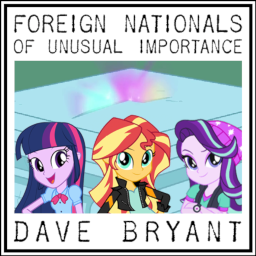
Cook
From the time I was old enough to understand what the word meant I wanted to be a diplomat. I started by reading everything I could get my grubby little hands on that my not-so-grubby little brain thought was relevant. Tuxedos and gowns, marble halls and grand staircases, champagne and caviar, rarefied heights of power and influence.
By the time I hit high school, I realized there was a great deal more to the job than the glamorous image portrayed in novels and movies—which didn’t dampen my aspirations, but did redirect them. I loaded my schedule with electives and buckled down. I quickly realized I also acquired an informal extra course in interpersonal conflicts, thanks to the less . . . understanding of my fellow students, unpleasant at the time but in retrospect a valuable lesson.
University was better so far as hazing was concerned, but the workload intensified enormously. I majored in international relations and studied abroad more than once for several grueling and expensive years. Still, partly by living like a monk, I managed to graduate near the top of my class. It was as well I did; had I not, my career ambitions would have ended then and there.
Simply to be considered for employment as a foreign service officer, an applicant must pass one of the most stringent and difficult civil-service exams in the world. The fortunate few who do so earn the honor of being put under the microscope, literally and figuratively, for medical and security clearance. The survivors are placed, from highest score to lowest, on the employment register (a fancy name for a glorified waiting list, really) for eighteen months. Anyone who hasn’t received—and accepted—an assignment offer in that time falls off the register, never to return; one offer can be refused, but not a second.
The odds are long. Fewer than two percent of applicants make it all the way through the gauntlet to matriculate as commissioned foreign service officers. Those commissions are the same legal instruments received by military officers, conveying authority and responsibility in the service of their nation.
Less than three months remained on my listing, and I was sweating bullets. I hadn’t even the chance to refuse an offer; none had been forthcoming. I was beginning to consider regretfully what else I could do with my life when the coveted fine, stiff envelope finally arrived.
It was the oddest offer I’d ever heard of. I would be a political officer, as I’d applied to become—and the sort people tend to think of when they hear the word diplomat—but serving domestically, which is somewhat unusual. The word unique showed up unexpectedly often in the exceptionally vague description, as did the word classified. The only other substantive information was the arresting phrase “interview and thereafter monitor a resident foreign national of unusual importance.”
How could I refuse? On the one hand, almost certainly no other offer would arrive before my time was up. On the other, the mysterious nature of the offer intrigued me. Perhaps I’m a glutton for punishment.

Your works are surprisingly educational. I approve.
8610307
Thanks very much! I aim to inform as well as entertain.
MMMMM, this is nerdy af I love it.
This looks pretty good.